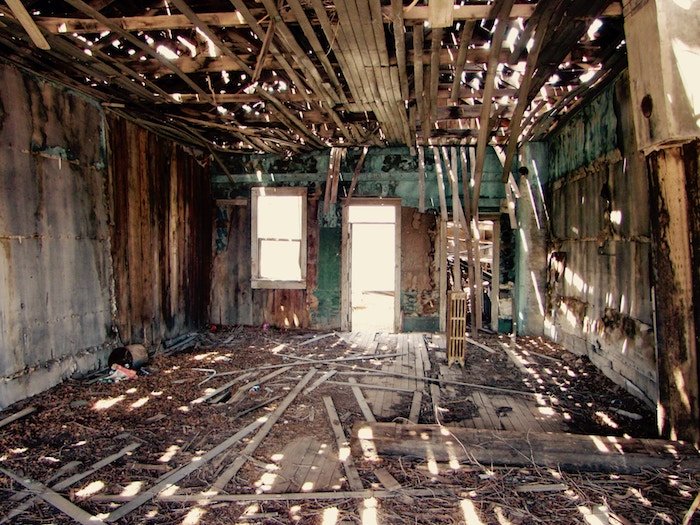Share this

Are you struggling with code violations in your home? You’re not alone. Many Knoxville homeowners face similar challenges, and Knoxville home-buying companies understand these situations all too well. Let’s break down everything you need to know about handling code violations and explore your options for moving forward.
Think of code violations as your home’s report card from the city. These violations happen when your property doesn’t meet current building, safety, health, or zoning standards. Just like how we update our phones and computers, building codes change over time to keep everyone safe and healthy.
Some violations might be small issues you can fix yourself, while others could seriously impact your property values and make it hard to sell your house. These rules aren’t meant to give you headaches – they’re there to protect residents and ensure every home meets basic safety standards.
For example, that wonky electrical outlet in your bathroom might seem like a minor annoyance, but it could be a violation that puts your family at risk. The good news? Companies that buy houses as is understand these challenges and can help you find solutions.
Let’s talk about what code enforcement officers typically find during inspections. Understanding these common issues can help you spot potential problems before they become major headaches.
Electrical problems often top the list of violations. We’re talking about:
Plumbing issues are another frequent concern. That small leak under your sink? It might be more serious than you think. Common plumbing violations include polybutylene piping, improper venting, and water heater installations that don’t meet current standards.
Fire hazards are particularly serious violations that the fire department takes very seriously. Missing smoke alarms blocked exits, and faulty electrical systems can all trigger citations that need immediate attention.
Local building codes are like the rulebook for your home’s safety and functionality. These codes are established standards designed to protect public health, safety, and welfare. They cover everything from electrical systems to plumbing, ensuring that every aspect of your home is up to par. Building codes can vary significantly from one city to another, and they are enforced at the municipal and sometimes state level.
As a homeowner, you might not always be aware of building code violations lurking in your property. These violations can range from minor issues to serious hazards that pose risks to public health and safety. Staying informed about your local building codes can help you avoid these pitfalls and ensure your home remains a safe haven.

If you’re wondering how to get a cash offer for your property, knowing its current condition is crucial. A professional home inspector can spot code violations during a thorough inspection. They’ll check everything from your foundation to your roof, giving you a clear picture of what needs attention.
City or county building inspectors also play a crucial role. These officials ensure properties comply with local codes and can help you understand what needs fixing. As a property owner, you can also do your own initial assessment by checking local municipality guidelines.
When you’re facing multiple code violations, it’s essential to tackle them strategically. Start with issues that pose immediate safety concerns – these are your priority fixes. A professional can help you create a plan that addresses the most critical problems first.
Some violations might be grandfathered in, meaning older homes get some leeway on certain requirements. However, major code violations that affect safety usually need immediate attention, regardless of when your house was built.
While you might be tempted to sell a house for sale by the owner, dealing with code violations often requires professional expertise. A home inspection plays a critical role in identifying code violations when selling a house. Sure, you can handle some minor updates yourself, but electrical systems, plumbing, and structural issues typically need licensed contractors.
The process can be overwhelming, especially when permit applications and inspections are involved. That’s why many property owners choose to sell to cash buyers who handle these headaches themselves.
When it comes to tackling code violations, partnering with the right professionals is crucial. Licensed contractors are your go-to experts for making repairs that meet current building codes. They have the skills and knowledge to address complex issues, ensuring your home is safe and compliant.
In addition to contractors, hiring an independent home inspector can provide you with a thorough visual inspection and a detailed professional opinion. These inspectors can identify potential code violations before they become major problems.
City or county code inspectors also play a vital role. They perform building code inspections and have the authority to mandate corrections or repairs for any code violations they find. Local building or fire department officials may also report code violations, emphasizing the importance of adhering to safety standards.
Fill out the form below or call us at (865) 999-0025 for your FREE cash offer!
Looking to sell my house fast Nashville? Being upfront about code violations is crucial. Tennessee law requires sellers to disclose known issues through proper paperwork to sell a house in Tennessee. Even if you’re wondering how to sell a fire-damaged house, honesty is always the best policy.
Most mortgage lenders require properties to meet certain standards. Selling the house as-is can be a viable option, offering advantages in terms of speed and convenience, especially for homeowners who lack the resources or time to make repairs. This can shrink your buyer pool significantly when dealing with violations. Traditional buyers might demand repair credits or significant price reductions, making the selling process longer and more complicated.
If you’re dealing with how much does water damage cost or trying to sell a moldy house, you’re probably concerned about property values. Code violations can significantly impact your home’s worth, and most buyers will either walk away or offer much less than you’d hope.
The local jurisdiction has specific rules about selling homes with code violations. National codes, like the National Electrical Code (NEC), serve to standardize electrical design and inspection across jurisdictions. Traditional financing can be nearly impossible to obtain for properties with serious issues, leaving many sellers wondering about their options.
Ignoring code violations can lead to significant legal consequences. Homeowners may face fines and penalties if they fail to address these issues. Moreover, you might be required to bring your house up to code before selling it, which can be a costly and time-consuming process.
Understanding state and local laws regarding the disclosure and resolution of code violations during a home sale is essential. Failure to properly address these issues could result in legal problems down the road, including potential lawsuits from buyers who discover code violations after purchasing the property. Being proactive and informed can help you navigate these legal waters smoothly.
When facing code violations, you have several paths forward. You could:
Preventing future code violations starts with regular property inspections. By routinely checking your home and addressing any issues promptly, you can avoid more significant problems down the line. Keeping detailed records of repairs and maintenance, including receipts and permits, is also crucial.
Consider hiring a home inspector periodically to identify potential code violations before they escalate. Staying up-to-date with local building codes and regulations can further help you avoid violations. By taking these preventive measures, you can ensure your home remains safe, compliant, and free from code violations.
Ready to learn more about us? We understand the stress of dealing with code violations. Our team specializes in buying properties in any condition, offering a straightforward solution when you need to sell quickly.
Don’t let code violations keep you stuck. Contact us today for a no-obligation cash offer on your home. We buy houses in any condition, handle all the paperwork, and can close on your timeline.
Remember, you don’t have to face these challenges alone. While selling with a realtor or by owner might seem like the traditional choice, it often leads to more stress and uncertainty when dealing with code violations. Let Nexus Homebuyers show you a better way to sell your home.
Code enforcement in Tennessee, especially in Knox County, protects citizens by ensuring properties meet safety standards. Local officials, typically working from the city county building in Knoxville TN 37902, inspect properties and enforce regulations. They focus primarily on safety issues that could affect both property owners and neighbors.
When your property doesn’t meet current building standards or has safety issues, it’s considered a code violation. Common code violations can include electrical issues, structural problems, or unpaid fines. The location of your property determines which specific codes apply, as different areas may have varying requirements.
House codes are safety and building standards that most homeowners must follow. These include regulations for windows, structural integrity, and various systems within your home. The National Association of Home Builders helps establish these standards, which are especially strict for new construction.
Tennessee follows a combination of state and local building codes, with many buyers particularly concerned about grandfathered code violation status. These codes ensure homes meet basic safety requirements, whether you’re in an older neighborhood or looking at potential buyers for newer properties.
Yes, you can sell your home as is, even with code violations, though it may affect your closing costs. Many buyers specialize in purchasing properties that need work. However, you must disclose known issues that the previous owner may have left unaddressed, like unpermited work.
Code enforcement officers can inspect your property’s exterior from public areas. However, they need permission or a warrant to enter private property. They work to ensure properties maintain a clear title and meet community standards.
When something isn’t “up to code,” it doesn’t meet current building standards. This often happens with older homes that were built under different regulations. These issues range from minor concerns to significant safety problems that need immediate attention.
“Not up to code” indicates that part of your property fails to meet current building standards. While some older features might be grandfathered in, serious safety violations typically need fixing. This affects property value and can impact insurance coverage.

Selling a house with code violations can be a complex and challenging process. However, by understanding local building codes, working with contractors and inspectors, and addressing legal implications, homeowners can navigate the process successfully. Preventive measures, such as regular inspections and maintenance, can also help homeowners avoid future code violations. By being proactive and informed, homeowners can ensure a smooth and successful transaction.
In conclusion, code violations are a common issue that can affect any homeowner. By being aware of the potential for code violations and taking proactive steps to address them, homeowners can protect their property and avoid costly fines and penalties. Whether you’re selling your home or simply want to ensure it’s safe and compliant, understanding local building codes and working with licensed contractors and inspectors is crucial. Don’t let code violations hold you back – take control of your property and ensure it’s up to code today.
We buy houses in Tennessee and have helped hundreds of homeowners to sell their homes all over Knox County, Blount County, Anderson County, Knoxville, Maryville, Oak Ridge, Farragut, and East Tennessee.
Sell Your Home
Resources
Contacts us
Copyright © 2025 Nexus Homebuyers